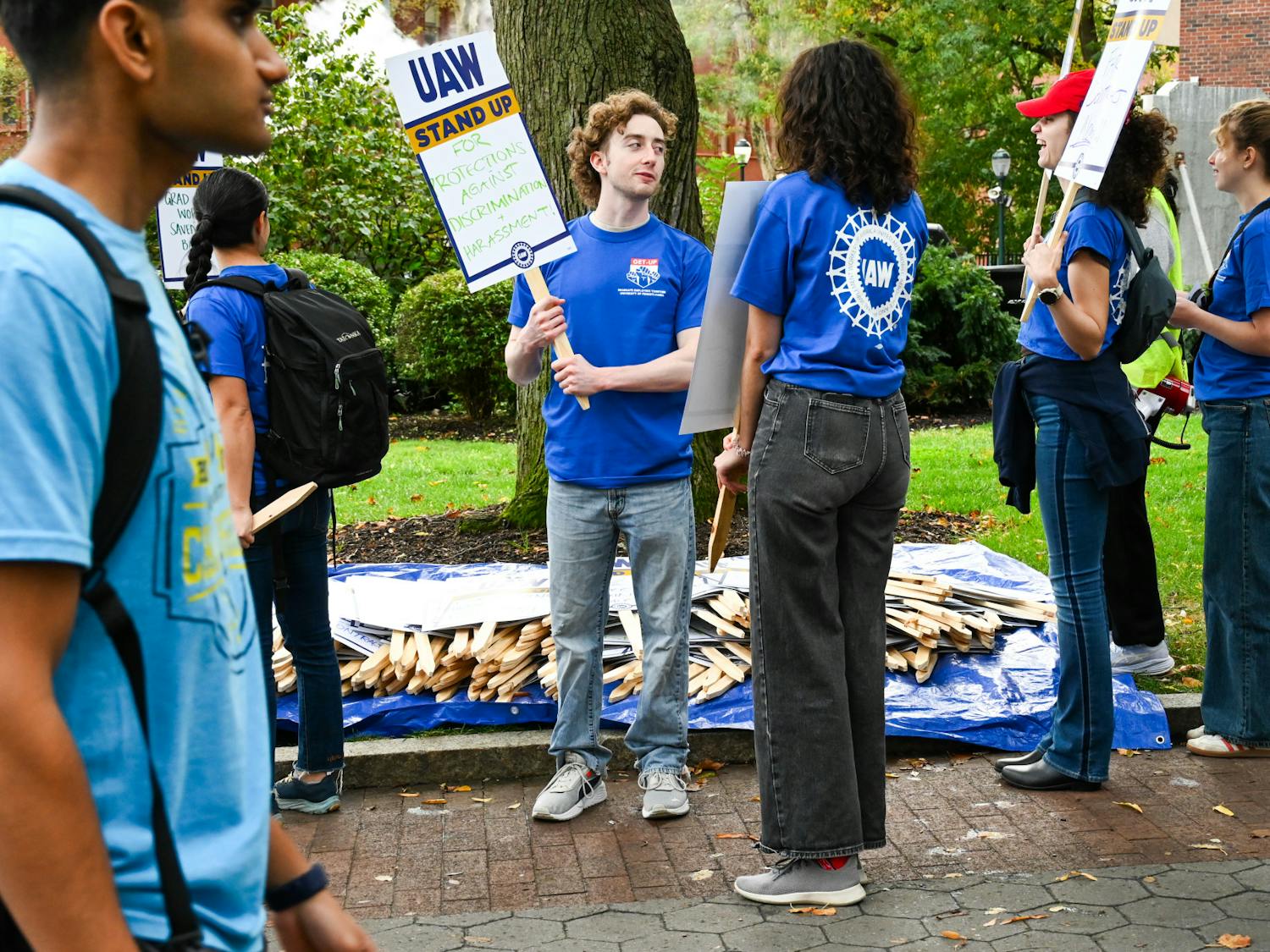Contract open to bidders The University announced yesterday that it will terminate its current residential security contract with McGinn Security Services on June 30 of this year, four years earlier then it was set to expire. And, in doing so, it took the first steps in drastically reformulating residential security policy. The decision to terminate McGinn was detailed in a joint statement by acting Vice Provost for University Life Valarie Swain-Cade McCoullum and Residential Living Director Gigi Simeone. The statement was released yesterday, but dated today. McCoullum said a new contract will be drawn up within the next months. Then, area security firms, including McGinn, can bid for it. Last month, The Daily Pennsylvanian reported that five McGinn guards were found asleep on the job during a two-hour period on the "graveyard shift" one night. As a result, McCoullum and Simeone notified McGinn on March 18 that the University was considering termination of its agreement with the firm. A month-long review of McGinn's performance and of residential security in general followed. Independent security consultants, a sleep disorder expert and a committee of University officials, students and staff members all wrote reports on the issue. The committee presented three possible options. The University could terminate McGinn's contract effective June 30; terminate McGinn's contract effective immediately; or put McGinn on 90 days probationary period, and if guards are found sleeping during that time, then McGinn would be terminated immediately. The University also had the option of excluding McGinn from the bidding process, if it decided to terminate McGinn's contract. "Under the three options, I guess I got the best shot I could get," said Joseph McGinn Sr., president of McGinn Security Services. The new contract will include specific performance guidelines and standards for guards, something currently lacking in the University's present agreement with McGinn. "This will be a tough contract," McCoullum said. McGinn said last night that he has no objections to having performance standards placed in a new contract. He added that he wants to talk with his employees, as well as with Simeone and University Police Commissioner John Kuprevich, before deciding whether to rebid for the contract. McCoullum said the contract will be presented to interested security firms within the next five weeks. The bidding process will take place before the contract with McGinn ends on June 30. If McGinn does not receive the contract, a new security firm will be in place by July 1, she added. McGinn's contract with the University, worth almost $1 million, accounts for 80 percent of the firm's total business. McCoullum said she is concerned about the impact this decision may have on McGinn's employees, but added that ensuring the utmost in security services for students was her primary concern. "This is difficult, but I think we made the right decision," she said. Simeone said about 100 McGinn employees could be affected by the decision. McCoullum and Simeone also recommended, in the same report, that responsibility for residential security be assumed by the Department of Public Safety. Residential security issues are currently handled by the Department of Residential Living, and supervised by the VPUL's office. In a statement, McCoullum and Simeone said, "we feel administrative units such as the Penn Police...have [the] expertise to address those issues which have been raised in the course of this recent review." If the recommendation is accepted by Interim President Claire Fagin and Interim Provost Marvin Lazerson, then Executive Vice President Janet Hale and Kuprevich will be in charge of implementing residential security policy. Also, if the recommendation to transfer jurisdiction to Public Safety is implemented, Hale and Kuprevich will be involved in choosing the guard firm to which the new contract will be awarded, McCoullum said. Simeone said it was always the University's goal to transfer control of residential security issues to Public Safety. "We always knew what was on the horizon," she said. "We are looking forward to working with Commissioner Kuprevich." McCoullum said she has asked Fagin and Lazerson for additional resources to invest in updated technology, such as new ID scanners, which could improve security. "Whatever happens to the security budget, we need to update technology," she said.
The Daily Pennsylvanian is an independent, student-run newspaper. Please consider making a donation to support the coverage that shapes the University. Your generosity ensures a future of strong journalism at Penn.
Donate







